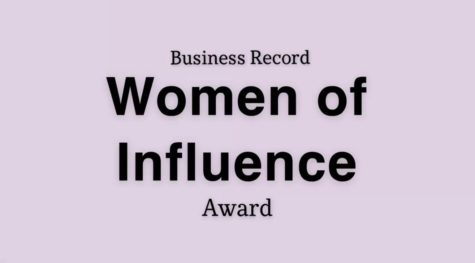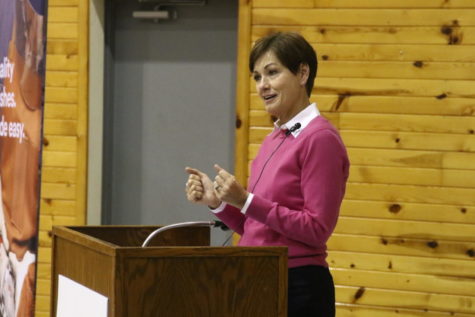College of Business advice for incoming students
May 31, 2011
Each college at Iowa State has its own unique quirks and benefits. These are some for the college of business that incoming students should know.
Large classes: Since the fall semester of 2010 enrollment at the College of Business has increased, affecting the number of students in undergrad classes.
“Our average class sizes at the undergrad level are higher than anywhere else in the university,” said Danny Johnson, associate dean for undergraduate programs for the College of Business. “They were at 69 students per class on average across all the undergraduate classes.”
Core classes are the courses every student in the College of Business must take in order to graduate, such as marketing, accounting and finance.
“Those average class sizes until fall 2010 were running anywhere approximately from 210 to about 280 students per class,” Johnson said.
The cause for the increase in class size has been attributed to budget cuts.
“The budget reductions of the last several years have meant that people are looking at the education needs of students,” said Dave Holger, associate provost for academic programs and dean of the graduate college.
International students: The College of Business is in the process of working out an arrangement that will allow students from China to come to Iowa State to finish their college education.
“The Chinese students will take their first two years of coursework there,” Johnson said. “Then they will come here and finish out the last two years in the College of Business at Iowa State. They will graduate with a degree from Iowa State.”
As of now, the only university in China the College of Business is developing this relationship with is Southwestern University of Finance and Economics in Chengdu, China.
The requirements that the students must meet are the same as every other transfer student.
“We treat them very similar to every transfer that would come in,” Johnson said. “The only difference would be is that if they are coming from a university outside the United States, they need to come in and pass the English proficiency exam that tells them what English course they’re going to be placed in.
The collaboration with Southwestern University of Finance and Economics brings in international students to increase the diversity in the student body and influence learning about different cultures.
Tax assistance: The College of Business is offering a program that assists citizens with their taxes, called the Volunteer Income Tax Assistance Program. The service is provided by trained ISU accounting students.
“This is a program that the IRS [Internal Revenue Service] has had for a very long time,” said William Dilla, associate professor of accounting. “It is at least 15 to 20 years old, maybe longer.”
The program has gotten more popular each year.
“Three years ago we did about 150 tax returns over the season; two years ago we did about 250; and last year we did about 500,”Dilla said. “I would think, though, we probably won’t do many more than 500 this year since there is only so much we can do.”
Help with communication skills: The Communication Center is a place where business students can get help in their writing and presentation skills. Business students are stereotypically criticized for a lack of skills in both writing and presentation.
“There are a lot of reasons that have compounded this scenario. For one, there has been a distant rise in technology to communicate,” said Abhijit Rao, director of the Communication Center. “A lot of times we have that impression that makes technology accessible but not necessarily high quality.”
Business students have goals that they are expected to meet.
“Disciplines have become very specialized,” Rao said. “Different business cultures expect their employees to communicate in a certain way, and those skills need to be taught to students.
Use career services early: Students who start with their orientation class are encouraged to meet the career services staff.
“We urge students to go to the career services office to start looking for internships or jobs that are available,” said Ann Coppernoll, undergrad program coordinator of the College of Business. “For most of the new students it is going to be three or four years down the line but they’re going to be looking at an internship in maybe one or two years.
Students who do not use career services miss out on a great opportunity.
“When using the career services students should always use their adviser to help them navigate any questions that come up,” Coppernoll said.















